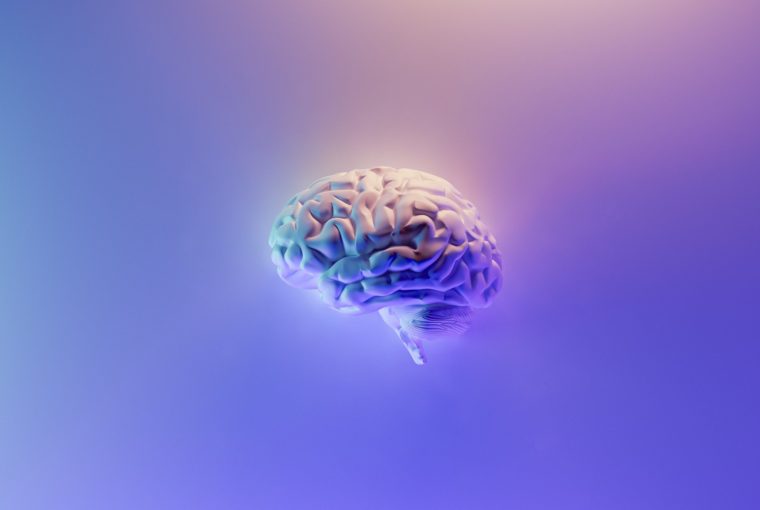If you have ever felt out of sorts, after a poor night’s sleep, it won’t surprise you that sleep deprivation affects brain function. Getting enough good-quality sleep sharpens focus and concentration and supports most aspects of cognitive thinking—memory, problem solving, judgment, creativity—as well as emotional processing.
Sleep is vital for neuroplasticity, the brain’s ability to adapt to new inputs and experiences. If we sleep too little, we are less able to process what we’ve learned during the day, plus we’ll have more difficulty remembering it down the road.
And those are just the short-term effects.
Recently, studies have linked sleep deprivation (and longer wake times) with longer-term cognitive decline, including the development of dementia and Alzheimer’s disease.
The Link Between Sleep and Neurodegenerative Disease
How sleep (or lack of sleep) affects brain health has, until recently, been something of a mystery, says Jenna Gress Smith, PhD, clinical psychologist and founder of Arizona Sleep & Health.
New studies, especially over the last decade, indicate that a good night’s sleep may literally clear the mind. In one study researchers found that the space surrounding brain cells—called the interstitial space—may increase during deep sleep, allowing cerebrospinal fluid (CSF), which flows in and around the brain, to flush out toxins and waste that build up during the day.
Previous research has shown that proteins linked to neurodegenerative diseases, including beta-amyloid, build up in that space between tissues.
“Beta-amyloid and tau are thought to disrupt and inhibit communication between neurons and become the building blocks for the plaques and tangles we see for Alzheimer’s disease,” says Gress Smith. “Because toxins can interfere with nerve function and damage cells, it’s essential for your brain to quickly and efficiently remove those waste products.”
Not only is sleep necessary for helping the brain stay healthy, the new studies seem to indicate that the deeper the sleep, the better. “The slow and consistent brain activity experienced during our deep sleep phase creates the ideal environment for the brain’s glymphatic system to clear out the gunk,” says Gress Smith.
Another study offers some insight into what gets the CSF flowing, suggesting that the same slow waves that coordinate memory consolidation act as a sort of “washing machine start button,” initiating the blood flow and increased circulation of CSF. “It appears they’ve discovered that there are really large waves of CSF that show up in the brain only during sleep,” Gress Smith says. “We are interested in what that means for maintaining brain health, especially in disorders such as Alzheimer’s disease.”
Deep Sleep: A Strategy for Preventing Cognitive Impairment
This growing body of research not only reaffirms the importance of sleep, it also hints at potential new strategies for slowing the onset and progression of Alzheimer’s disease and cognitive impairment.
Researchers and sleep scientists are beginning to think about good sleep as a potential preventive of dementia and Alzheimer’s disease. “Although more studies are needed, much of this preliminary research offers hope that taking steps to improve sleep may reduce the longer-term likelihood of developing Alzheimer’s or dementia,” Gress Smith says.
The flip side of this seems to be true as well: recent studies indicate that disrupted sleep due to too much wake time leads to greater synaptic activity (signaling and communication between brain cells), which can increase deposits of beta-amyloid. “This aligns with other recent neuroimaging studies that suggest excessive neural activity, such as from lack of sleep, may contribute to the onset of AD,” Gress Smith says.
All these emerging studies have implications for helping clinicians better understand the relationship between sleep disturbance and psychiatric and neurodegenerative conditions. “They may even direct us to new approaches to diagnosis, and highlight how sleep can influence the progression of psychiatric and neurodegenerative diseases and vice versa — it’s a complex and bidirectional relationship,” Gress Smith says.
Given the increased rates of Alzheimers and dementia, these findings should encourage neurologists and other clinicians to really pay attention to patients’ sleep and not just dismiss disturbed sleep as a normal part of aging. That’s especially important because at the moment, there are almost no effective treatments for cognitive impairment, dementia, and Alzheimer’s.
At the very least, a good night’s sleep will help you function better when you wake up the next day, so there’s really no downside to figuring out which sleep strategies will help you have your most restful night.
RELATED: 8 Ways to Get More Deep Sleep, According to Oura Members




